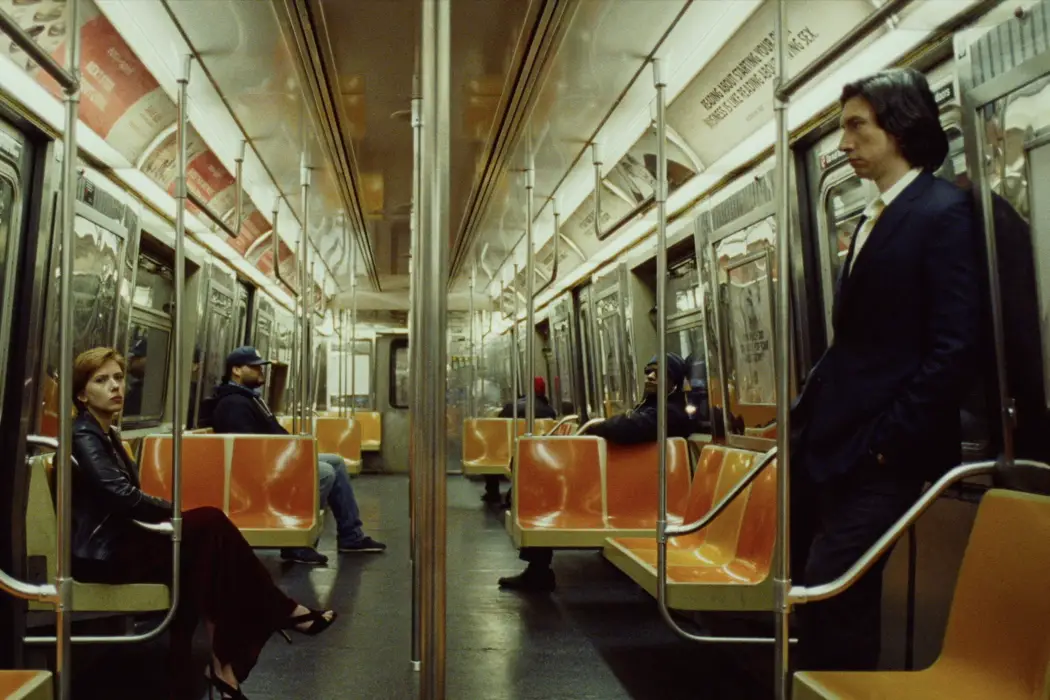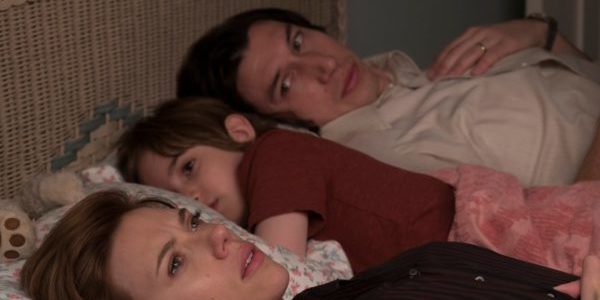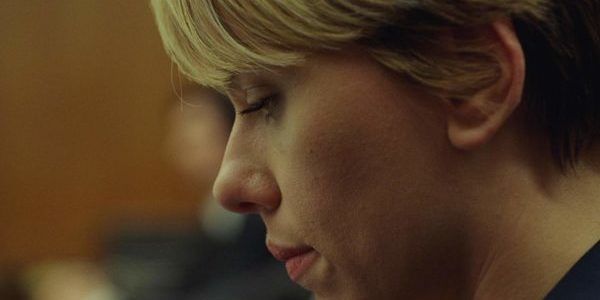MARRIAGE STORY: An Examination Of Divorce That Carries Loose Ends

Janet is a writer based in Salt Lake City. A…
Noah Baumbach has had a knack for illuminating the human condition among white privileged artists. Unfulfilled ambition, life transitions, and New York City are his cup of tea. He induces us with charm in the narcissistic world of creativity.
In Marriage Story, director and writer Baumbach examines the harrowing divorce of two artists on opposite sides of the country. Loosely based on his own experience, the film realistically portrays two people who want to amicably divorce, yet circumstances unleash a contemptuous and convoluted journey. Yes, it sounds quite grim, but the writer/director indulges us with his Baumbachian styles that even with a heavy subject matter, there’s a feeling of looseness, consolation, and even joy that comes out of it.
Baumbach introspectively stitches together pain, contempt, compassion, and love that makes it his most intimate project. Though the film does a brilliant and meditative job of fleshing out the painful complexities of human emotion, I can’t help but feel that something is missing. You ruminate trying to figure out what it is, and you realize it’s a lack of cohesiveness in the character dynamics. Baumbach fails to fine-tune the relevant components that don’t do his characters justice.
Journey of Divorce
When the film begins, Charlie (Adam Driver) and Nicole (Scarlett Johansson) have split and are on their way to a divorce. Charlie is a theater director in New York City. Nicole is a former Hollywood actress who moved to New York upon meeting Charlie.

Wanting to go their separate ways amicably, they have agreed to not hire lawyers. But once Nicole moves in with her mother, Sandra (Julie Hagerty) and sister, Cassie (Merritt Wever) in L.A. to star in a major TV pilot, she decides that she wants to move to the West Coast indefinitely. From the recommendation of her producer, Carol (Sarah Jones), Nicole hires a bold and mighty divorce lawyer, Nora Fanshaw (a fantastic Laura Dern) to initiate and settle their divorce.
The centerpiece of their dispute is the custody of their son, Henry (marriage story Robertson), who has relocated to L.A. with his mother. The odds are against Charlie. Not only does the New York-based director have to hire a lawyer in LA, but being an East Coast resident doesn’t rule in his favor to the court.
Unlike in The Squid and the Whale where Baumbach primarily explores the impact of divorce on kids, in Marriage Story, he heavily examines the impact on the parents. They endure life-changing events of shuffling their kid back and forth while figuring out all the legal legwork. It’s especially interesting how these two artists’ identities and relationships are tested in the systematic world of high-powered lawyers.
An Examination of Identity
Baumbach doesn’t leave any kind of mystery in terms of who wins custody of their child. It’s not what the film is about; we know who’s going to win. Rather, Baumbach conscientiously and universally illustrates how relationships shift identity.
What brought Charlie and Nicole together is what ultimately drove them apart – the world of theater. It linked them together as a collaborative and married duo, but as Charlie rose to prominence, Nicole shrank. Her desires, needs, and identity became secondary to his.
At the start of the film, Nicole is someone who has lost herself and is working on rebuilding her identity and worth through her new life in L.A. Simultaneously, Charlie is someone who has it all from the very beginning. As his divorce journey begins, we witness his worth deteriorating gradually.
Intricacies of Emotions
Baumbach does an excellent job of exhibiting the complexity of emotions. How it shifts and contradicts in unexpected ways. Johansson and Driver brilliantly execute these intricacies while displaying compassion and love. It’s a difficult and highly personal level of intimacy, and both actors navigate these emotions beautifully.

It’s especially interesting to see how they get swept up by the bloodthirsty game of legal proceedings led by their assertive lawyers (“This system rewards bad behavior,” Nora tells Nicole). These events mold and challenge Nicole and Charlie who both want to take care of their business amicably.
Camera and Editing Techniques
Baumbach translates their life and career through stylistic elements of the film. From the camera movements to the editing techniques, they all illustrate where Nicole and Charlie come from. The theater is what brought them together and what ultimately drove them apart. Their passion and newness of their divorce journey are meticulously displayed in the frames.
From the fade in and fade outs between scenes to the close-up and still shots, these allow us to get up close to the characters during their most difficult and intimate moments. There’s also a theatricality that simmers from these stylistic techniques that allow us to really be present and still throughout the chaos.
Though Strong, Dynamic Imbalances are Apparent
The film definitely focuses on Charlie’s journey. We see him desperately trying to pull pieces together while his worth and identity fades. Though poignant and raw (Driver gives the best performance of his career), you can’t help but feel Baumbach’s bias for Charlie. The writer/director tries to pull more empathy on Charlie’s end. From the beginning, the film carries intentions of being impartial, yet Baumbach fails to fine-tune Nicole that her character sputters.

As a result, I felt that the role of Nicole was undermined; we don’t see and feel enough from her that she simply becomes a passive figure that upholds Charlie’s journey. There isn’t enough depth in her character that shows genuineness behind her own story. Nicole is someone who has undergone and endured great pain throughout their marriage, but these components weren’t utilized enough to truly mold her character.
Despite her love and desire to be on amicable terms with her husband, I feel that we didn’t see much of that from her. Her character is rather choppy in exuding compassionate contempt. There’s a passive-aggressiveness about her through most of the film that isn’t explained. It’s as though Baumbach was so invested in Charlie’s journey that he forgot to patch up and complete Nicole’s character.
A part of the reason why we don’t feel much of Nicole is because Baumbach fails to bring Charlie’s flaws to life much sooner in the film. We do see a glimmer of it later on, but it’s not substantial enough to see him as a faulty character. As a result, Charlie is given too much credit in the end.
Conclusion: Marriage Story
Marriage Story is a promising film that has carved out powerful performances from the cast, but Baumbach’s strategies in drawing out his character arcs are uneven, insufficient, and disappointing. Though he shapes his narratives with thoughtful intentions, it’s not his best project.
What are some of your favorite films about separation? Please share by commenting below.
Marriage Story is available on Netflix.
Does content like this matter to you?
Become a Member and support film journalism. Unlock access to all of Film Inquiry`s great articles. Join a community of like-minded readers who are passionate about cinema - get access to our private members Network, give back to independent filmmakers, and more.
Janet is a writer based in Salt Lake City. A strong advocate for underrepresented voices, she believes cinema is a transformative medium that challenges assumptions and creates diverse conversations.












